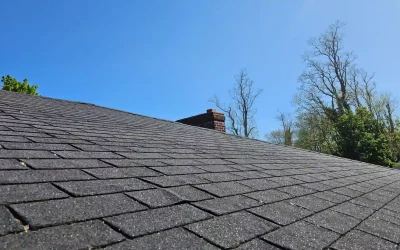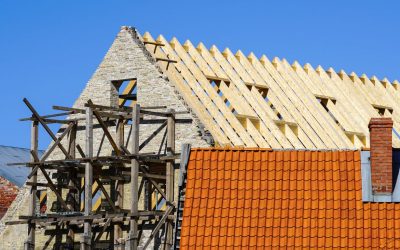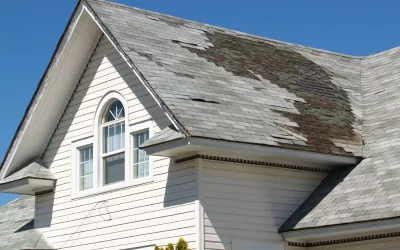Introduction: Solar Power as an Alternative Energy Source
As the world faces the challenges of climate change and finite fossil fuel reserves, the search for sustainable energy sources has become increasingly important. Solar Roof Systems have emerged as a promising alternative, harnessing the energy of the sun to produce electricity without the emissions that come from traditional power sources.
In this article, we will explore the basics of solar power as an alternative energy source. We will discuss how solar power works, its benefits, and how it compares to other renewable energy sources.
Whether you’re new to the concept of solar power or simply curious about the potential of this renewable energy source, this introduction will provide you with a foundational understanding of the power of the sun and its role in our energy future.
The Different Types of Solar Roof Systems
When it comes to solar energy, one of the most popular options for homeowners is to install solar panels on their roofs. Solar panel roof systems offer numerous benefits, including reduced energy bills, environmental sustainability, and potentially even selling excess energy back to the grid. However, not all solar panel roof systems are the same. There are various types available, each with its own set of characteristics and considerations. In this blog section, we will explore some of the different types of solar panel roof systems and discuss their pros and cons.
- Photovoltaic (PV) Panels: PV panels are the most common type of solar panel roof system. These panels are made up of interconnected solar cells that convert sunlight into electricity. They are typically installed on top of the existing roof structure using mounting racks. PV panels come in different sizes, efficiencies, and materials, such as monocrystalline, polycrystalline, and thin film. They are versatile, cost-effective, and can be easily integrated into various roof types. However, PV panels require ample roof space for optimal energy production and may affect the aesthetics of the roof.
- Building Integrated Photovoltaics (BIPV): BIPV systems are designed to replace traditional building materials, such as roof tiles or shingles, with solar panels. These systems blend seamlessly into the roof, providing both structural functionality and energy generation. BIPV systems offer an attractive option for homeowners who prioritize aesthetics, as they mimic the appearance of conventional roofing materials. Additionally, BIPV systems can help offset the initial cost of solar panel installation by replacing the need for traditional roofing materials. However, BIPV systems tend to be more expensive compared to standard PV panels, and their energy efficiency may be slightly lower due to the integration constraints.
- Solar Roof Tiles: Solar roof tiles, also known as solar shingles, are specifically designed to resemble traditional roof tiles or shingles while harnessing solar energy. Each solar roof tile contains small solar cells that generate electricity when exposed to sunlight. Solar roof tiles offer an aesthetically pleasing option for homeowners who prefer a seamless integration of solar panels into their roofs. They provide a more uniform appearance compared to traditional PV panels. However, solar roof tiles are generally less efficient than PV panels and may require a larger roof area to generate the desired amount of electricity.
- Solar Thermal Systems: Unlike PV panels that convert sunlight into electricity, solar thermal systems utilize solar energy to heat water or air for domestic use or space heating. These systems consist of thermal collectors installed on the roof, which absorb sunlight and transfer the heat to a fluid or air. Solar thermal systems are highly efficient for water heating purposes and can significantly reduce energy costs. However, they are less common for electricity generation and may not be suitable for areas with limited sunlight or high electricity demands.
Understanding the Pros and Cons of Each Solar Roof Systems
Before making a decision on which solar roof system to install, it’s important to understand the pros and cons of each option. In this section, we will discuss the advantages and disadvantages of each solar roof system to help you make an informed decision.
| Solar Roof System | Pros | Cons |
|---|---|---|
| Photovoltaic (PV) Solar Panel Systems: | High energy efficiency: PV solar panels offer excellent energy conversion rates, allowing you to maximize electricity production. Versatile installation: PV panels can be installed on a variety of roof types, including sloped and flat roofs. Long lifespan: With proper maintenance, PV solar panels can last 25 to 30 years or more, providing a reliable source of clean energy. Decreased electricity bills: Generating your electricity can significantly reduce your monthly energy expenses. | Upfront cost: PV solar panel systems require a significant initial investment for equipment and installation. However, the cost has decreased over the years. Aesthetics: Some homeowners may find the appearance of traditional PV panels less visually appealing, especially on certain architectural styles. Weather dependency: PV panels rely on sunlight, so their performance may be affected during cloudy days or in shaded areas. |
| Building-Integrated Photovoltaics (BIPV) | Seamless integration: BIPV systems replace traditional roofing materials, offering a visually cohesive and aesthetically pleasing solution. Architectural flexibility: BIPV allows for various design options, including solar roof tiles, solar shingles, and solar facades, enabling customization to match the building’s style. Energy generation and roofing functionality: BIPV combines the benefits of solar energy production with the protection and functionality of roofing materials. Space optimization: BIPV systems make efficient use of available roof space, maximizing energy production potential. | Higher cost: BIPV systems typically involve higher installation costs due to the integration of solar technology into roofing materials. Limited efficiency: BIPV systems may have slightly lower energy conversion rates compared to traditional PV panels, affecting overall energy production. Retrofitting challenges: Retrofitting existing roofs with BIPV systems can be more complex than installing standard PV panels. |
| Solar Roofing Membranes | Lightweight and flexible: Solar roofing membranes are lightweight, making them suitable for various roof types, including flat or low-slope roofs. Seamless integration: These membranes blend with the roof’s surface, providing a streamlined appearance. Durability: Solar roofing membranes are designed to withstand environmental elements, ensuring long-lasting performance. Easy installation: The flexibility and simplicity of solar roofing membranes result in relatively quick and straightforward installation processes. | Lower energy efficiency: Solar roofing membranes typically have lower energy conversion rates compared to traditional PV panels. Limited design options: As these membranes are applied on top of existing roofing materials, the aesthetic customization options are more limited. Higher maintenance requirements: Roof coatings may require regular inspections and maintenance to ensure proper performance and avoid leaks. |
| Solar Thermal Roof Systems | Efficient heat production: Solar thermal systems effectively harness solar energy for water heating or space heating, reducing reliance on traditional heating methods. Cost-effective for heating applications: Solar thermal systems can provide significant savings on water heating costs, making them suitable for applications such as swimming pools. Reduced carbon emissions: By utilizing solar energy for heating, solar thermal systems contribute to a greener and more sustainable environment. | Limited electricity generation: Solar thermal systems focus on heat production and do not generate electricity. Roof space requirements: Solar thermal systems may require additional roof space for the installation of thermal collectors, which can limit their feasibility on smaller roofs. Maintenance and complexity: Solar thermal systems involve additional components, such as heat exchangers and pumps, which require regular maintenance and occasional repairs. |
Now that you have a better understanding of the different types of solar panel roof systems and their pros and cons, it’s time to determine which system is right for you. In this section, we will discuss some factors to consider when making this decision.
Determining Which Solar Roof Systems is Right for You
- Your energy needs
The first factor to consider is how much energy your home or business consumes. This will help determine the size of the solar panel system you need. You can start by looking at your utility bills to see how much energy you typically use each month.
- Your available roof spaces
The size and type of your roof will also play a role in determining which solar panel system is right for you. Traditional solar panels require a significant amount of roof space, while solar shingles and BIPV systems offer more flexibility.
- Your budget
Cost is also an important factor to consider. Traditional solar panels are typically the most expensive option, but they also offer the highest efficiency and power output. Solar shingles and BIPV systems are generally more expensive than traditional roofing materials but can offer long-term cost savings through energy production.
Conclusion: Making an Informed Decision About Your Solar Setup
Switching to solar power can be a smart investment for both your wallet and the environment. By exploring the different types of solar panel roof systems and understanding their pros and cons, you can make an informed decision about which system is right for you. Consider factors such as your energy needs, available roof space, budget, aesthetics, and local regulations and incentives when making your decision. Consulting with a professional roofing contractor can also provide valuable insights and help ensure you get the most out of your solar setup. With the right solar panel system in place, you can enjoy clean, renewable energy for years to come.




